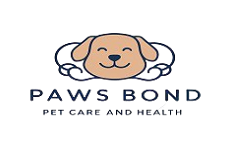Although fiber is frequently overlooked in the context of Dogs nutrition, its significance cannot be emphasized. For dogs, fiber is essential for maintaining digestive health, encouraging regular bowel movements, and enhancing general wellbeing. As conscientious pet owners, we must recognize the importance of fiber in our pets’ diets and make sure they get enough of it for optimum health.
With the goal of illuminating the world of high-fiber canine sources, this article offers a wide variety of wholesome choices that can be added to your dog’s diet. We’ll look at a range of high-fiber dog foods, from well-known options like carrots and wheat germ to less well-known ones like pumpkin and kale.
By the time you finish reading this blog, you’ll have the information and tools necessary to add high-quality sources of fiber to your dog’s diet, improving their general health and well-being.
Fiber’s Essential Role in Dog Diets
Fiber is an essential component of every dog’s diet since it helps to keep their digestive systems healthy and general wellbeing. Since dogs don’t have the enzymes to break down some plant elements, fiber serves as a natural constipation preventer and promoter of regular bowel movements. Furthermore, by encouraging a sensation of fullness, fiber can aid in weight management and help control blood sugar levels. For dogs to maintain optimum health and avoid gastrointestinal problems, it is imperative to make sure they are consuming enough fiber. Pet owners may provide their furry friends the nutrition they need to live happy, healthy lives by include foods high in fiber in their diets.
Dogs’ Ideal Fiber Requirements
It’s critical for dogs’ general health to ascertain their optimal fiber needs. A reasonable amount of dietary fiber, usually between 2% and 4% on a dry matter basis in their meal, is generally beneficial for adult dogs. Individual characteristics, such as breed, age, stature, and health, can affect the amount of fiber required. It is imperative to speak with a veterinarian in order to customize the dog’s fiber intake to meet their specific needs. Consuming enough fiber promotes digestive health, controls bowel motions, and enhances general wellbeing. Dogs are guaranteed to consume the right quantity of fiber for their health and vigor through routine evaluation and modification.
Understanding Fiber’s Function in dog Diet
It is essential to comprehend the role that fiber plays in a dog’s diet in order to maintain their general health and wellbeing. In the diet of dogs, fiber plays a number of crucial functions.
Digestive Health:
Fiber helps to keep the digestive system functioning normally by encouraging regular bowel movements and averting constipation. It gives the stool more volume, which facilitates the effective passage of waste through the digestive system.
Weight Management:
By encouraging a sensation of fullness, fiber can help dogs maintain their weight and even prevent obesity by reducing overeating.
Blood Sugar Regulation:
Because soluble fiber slows down the absorption of glucose from the digestive tract, it can assist dogs’ blood sugar levels stay under control.
Gut Microbiota Health:
As a prebiotic, fiber feeds the good bacteria that make up the gut microbiota. Both optimal digestion and general immunological function depend on a balanced population of gut bacteria..
Knowing the role that fiber plays in a dog’s diet helps pet owners choose the right kinds and quantities of high-fiber foods to feed their dogs, therefore encouraging overall health and wellbeing.
Options for Nutritious Fiber in Dogs
Nutritious fiber can be added to a dog’s diet in a variety of ways to support both digestive health and general well-being. The following are some top-notch canine fiber sources:
Vegetables:
Rich in fiber, vegetables like carrots, broccoli, kale, lettuce, and pumpkin are simple to include in a dog’s diet, whether it’s prepared, steamed, or raw..
FruitsIn addition to being tasty, fruits like apples, blueberries, and strawberries (without seeds) give dogs vital minerals and fiber. Fruits, however, should only be consumed in moderation because of their high sugar content.
Whole Grains:
Whole grains, including as barley, brown rice, and oats, are rich in fiber and other vital nutrients that are good for dogs’ digestive systems..
Legumes:
Dogs can get a lot of fiber and plant-based protein from legumes like lentils, chickpeas, and green peas.
Flaxseed and Chia SeedsRich in fiber, omega-3 fatty acids, and other nutrients that are good for dogs’ general health are ground flaxseed and chia seeds.
Beet Pulp:
Soluble fiber from beet pulp, a typical ingredient in dog food, promotes digestive health and helps control bowel motions.
Wheat Germ:
In addition to being abundant in fiber, wheat germ gives dogs vital vitamins and minerals.
Pet owners can make sure their canine friends get the nutrients they need to maintain great digestive health and general wellbeing by including a range of these high-fiber foods in their diets.
Analyzing Metamucil’s Adequacy as a Fiber Source for Dogs
Analyzing the content, prospective advantages, and potential disadvantages of Metamucil is necessary to determine whether it is an adequate source of fiber for dogs.
Plant ago ovata seeds are the source of psyllium husk, a soluble fiber that is included in the well-known fiber supplement Metamucil. Even though its main purpose is to help humans with constipation and digestive health, some dog owners might be curious about its suitability for canines.
Dogs can benefit from psyllium husk in some circumstances. It forms a gel-like substance in the digestive tract by absorbing water, which helps ease diarrhea or constipation and assist control bowel movements. Soluble fibers, such as psyllium, can also help dogs with diabetes or hyperlipidemia by assisting in the regulation of blood sugar and cholesterol levels.
Nonetheless, there are crucial factors to take into account while giving dogs Metamucil or comparable products. To begin with, the dosage needs to be closely monitored in order to prevent over supplementation, which may cause upset stomach or other negative consequences. Furthermore, psyllium husk may cause allergies or sensitivities in certain dogs, so it’s important to introduce it carefully and watch for any negative reactions.
Moreover, even while Metamucil might be a handy source of fiber, a dog’s diet shouldn’t depend solely on it for fiber. For a dog’s general nutritional needs, a balanced diet that includes a range of fiber-rich foods such fruits, vegetables, and whole grains is preferred.
Dogs may benefit from taking a dietary supplement of Metamucil if their veterinarian approves of it, but only in moderation and in conjunction with a healthy diet. To guarantee the best possible health and wellbeing for their dog, pet owners should speak with their veterinarian before adding any new supplements and closely watch how their dog responds.
Other High-Fiber Dog Food Selections
Apart from Metamucil, there exist multiple other high-fiber dog food options that can enhance your dog’s diet to make it well-rounded and nourishing. These days, a lot of commercial dog diets come in formulations that are especially made to be high in fiber, using things like fruits, vegetables, and whole grains. Seek for goods where ingredients high in fiber, such as sweet potatoes, lentils, peas, and brown rice, are included near the top of the ingredient list. To further increase fiber content, some specialist dog diets may also contain additional fiber sources like psyllium husk or beet pulp. To choose the best high-fiber solution for your dog’s specific needs, always visit your veterinarian.
Conclusion
It’s critical to maintain your dog’s digestive health and general wellbeing by making sure they get enough fiber in their food. Fiber is essential for maintaining gastrointestinal health, controlling bowel motions, and even helping with weight management. You may assist in fostering your dog’s optimum health and vigor by including a range of high-fiber foods in their meals, such as fruits, vegetables, whole grains, and specialty dog diets. Never forget to speak with your veterinarian to find out how much fiber is best for your dog’s individual requirements and to keep an eye on how they react to dietary adjustments. You may contribute to your dog’s happiness and health by paying attention to how much fiber they consume.










